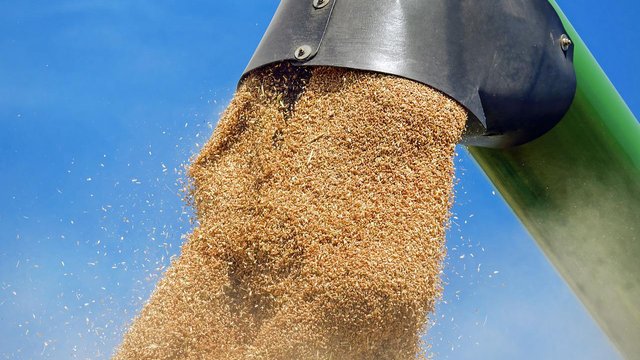EU should maintain ban on grain imports from Ukraine to 5 countries, but continue to expand transit - Commissioner for Agriculture

The decision to ban the import of wheat, corn, rapeseed and sunflower from Ukraine to Bulgaria, Hungary, Poland, Romania and Slovakia has confirmed its effectiveness and should be continued after September 15, but at the same time it is necessary to further expand the Solidarity Lanes for the transit of this Ukrainian products, European Commissioner for Agriculture Janusz Wojciechowski has said.
"We found a solution that, firstly, stabilized the market in these (five) countries, and, secondly, allowed us to increase transit from 2.9 million tonnes before the ban from Ukraine to 3.2 million tonnes after the ban was introduced," he said at a debate on extending the ban in the European Parliament on Tuesday evening.
According to him, 44 million tonnes of agricultural products from Ukraine have already been transported along the roads and railways of the Solidarity Lanes of these countries, which is a huge success.
Wojciechowski clarified that according to current forecasts for this marketing year 2023-2024, Ukraine needs to export 56 million tonnes of grain, or 4.7 million tonnes on average per month.
"The Black Sea is blocked and no one knows whether it will be unblocked by Russia. Russia knows what it is doing in this regard, what criminal activities it is conducting, and it is using food as a weapon. But we are able to help Ukraine export these 4.7 million tonnes by land through the Solidarity Lanes. We simply need to improve and expand these corridors," the European Commissioner emphasized.
He recalled that transit was close to this figure in November 2022, amounting to 4.2 million tonnes.
Wojciechowski emphasized that in addition to the main route through Romania, which accounts for about 3 million tonnes monthly, it is necessary to develop new routes to the ports of the Baltic countries: Lithuania, Klaipeda, Riga and to the Adriatic ports, for example Rijeka, since Romania is already practically unable to increase transit.
He pointed out that such growth in transit via alternative routes is limited not by infrastructure, but by the economy, and to make it profitable, according to Ukrainian calculations, subsidies of EUR 20 to EUR 40 per tonne are needed.
The European Commissioner called on MPs to approve such spending, which will allow grain to be effectively exported from Ukraine along the Solidarity Lanes to countries in need, even if Russia continues to block or destroy Ukrainian Black Sea ports.
Speaking about Romania and the Danube Corridor, he said that the measures taken have reduced logistics costs by almost 50%, and will also ensure a stable capacity of 3 million tonnes per month in September and will increase to 4 million tonnes per month by the end of the year. Wojciechowski recalled that Romania and Moldova have made a lot of effort and investment to ensure smooth trade and increase road capacity.
In addition, the European Bank for Reconstruction and Development is working on pilot schemes for war insurance and guarantees for transit activities, as well as increasing river and sea transport, the European official added.
The European Commissioner for Agriculture also called on the Ukrainian side to seriously consider and rethink its position on this issue, abandoning claims against these five countries.










